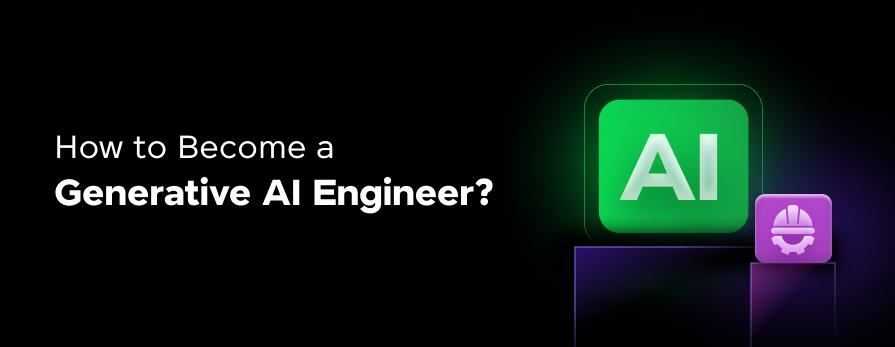
How to Become a Generative AI Engineer?
Mar 13, 2025 8 Min Read 4773 Views
(Last Updated)
Generative AI is revolutionizing the tech landscape, it is all you hear about these days and will be hearing about in the upcoming years. As a generative AI engineer, you’ll be at the forefront of creating intelligent systems that can produce content, solve complex problems, and even mimic human creativity.
Throughout this guide, we’ll explore the essential skills you’ll need to acquire, the education paths you can follow, and a custom step-by-step guide to becoming a generative AI engineer just for you.
Table of contents
- Understanding Generative AI Engineering
- What is Generative AI?
- Core Concepts
- Types of Generative Models
- How Generative AI Works
- Data Preprocessing
- AI Model Training
- Identifying Patterns
- Probabilistic Data Generation
- Iterative Training with Feedback
- What is a Generative AI Engineer?
- Generative AI Engineer Responsibilities:
- Generative AI Engineer Roles and Salaries
- Generative AI Engineer
- AI Research Scientist
- AI/ML Developer
- Data Scientist (with AI focus)
- Skills Required to Become a Generative AI Engineer:
- Programming Languages
- Understanding of Machine Learning Algorithms
- Deep Learning Techniques
- Natural Language Processing
- Strong Mathematical and Statistical Skills
- Experience with Data Engineering
- Model Deployment and Scaling
- Generative AI Engineer Education and Career Path
- Formal Education
- Online Courses and Certifications
- Career Path
- Step-by-Step Guide to Becoming a Generative AI Engineer
- Foundational Skills
- Machine Learning and Deep Learning
- Generative AI Focused Training
- Practical Implementation
- Tools and Technologies
- Takeaways…
- FAQs
- What is the salary of a generative AI engineer?
- What is generative AI engineering?
- How do you become a generative AI engineer?
- What programming language is used in generative AI?
- Is there any certification for Generative AI?
Understanding Generative AI Engineering
What is Generative AI?
Generative AI refers to a category of artificial intelligence models designed to generate new content, such as images, text, or music, that mimics human creation.
Unlike traditional AI systems that focus on analysis and prediction, generative AI models are designed to produce original outputs based on patterns in existing data.
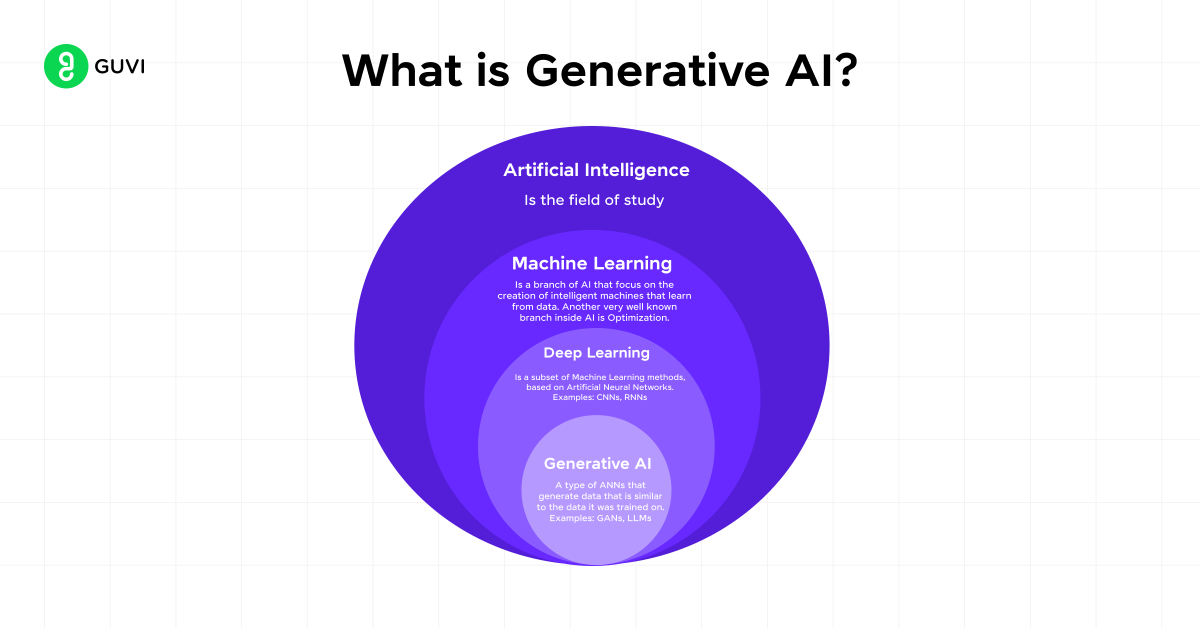
These models learn patterns from existing data and then use this knowledge to produce new outputs that are often indistinguishable from human-made content.
Core Concepts
- Generative Models: Algorithms that generate new data instances from an existing dataset. Common examples include Generative Adversarial Networks (GANs), Variational Autoencoders (VAEs), and transformer-based models.
- Training and Inference: Generative AI models undergo training where they learn to map input data to output data, followed by inference where they generate new data based on the learned patterns.
Would you like to master Generative AI with top experts in the field and build real-world projects? Then GUVI’s Generative AI course will be the perfect resource for you!
Types of Generative Models
Several types of generative models are used in AI engineering:
- Variational Autoencoders (VAEs): These models learn compressed representations of input data and generate new samples similar to the original.
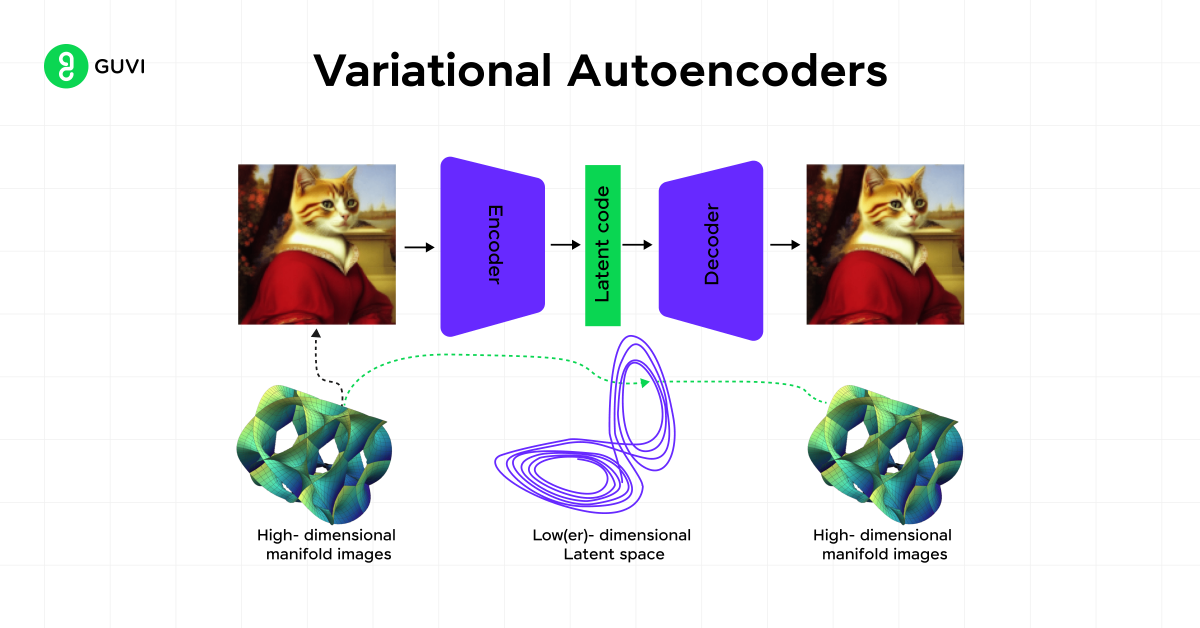
- Generative Adversarial Networks (GANs): GANs consist of two competing neural networks – a generator and a discriminator – that work together to create highly realistic content.
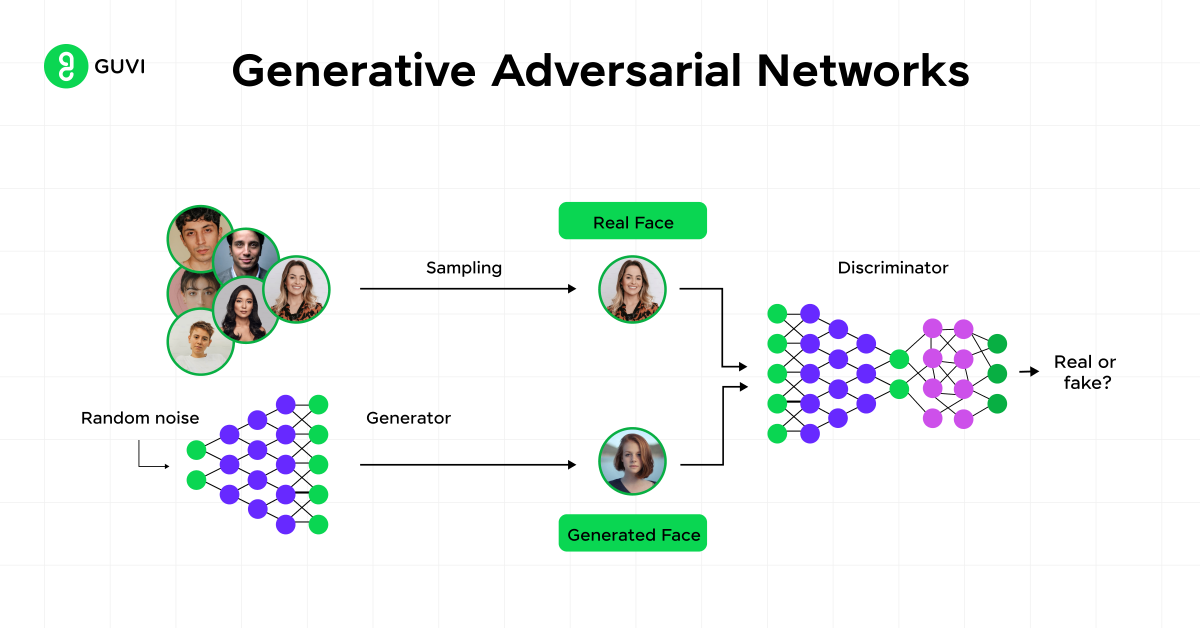
- Autoregressive Models: These models, including Transformers and Recurrent Neural Networks (RNNs), generate new data by predicting the next element in a sequence based on previous elements.
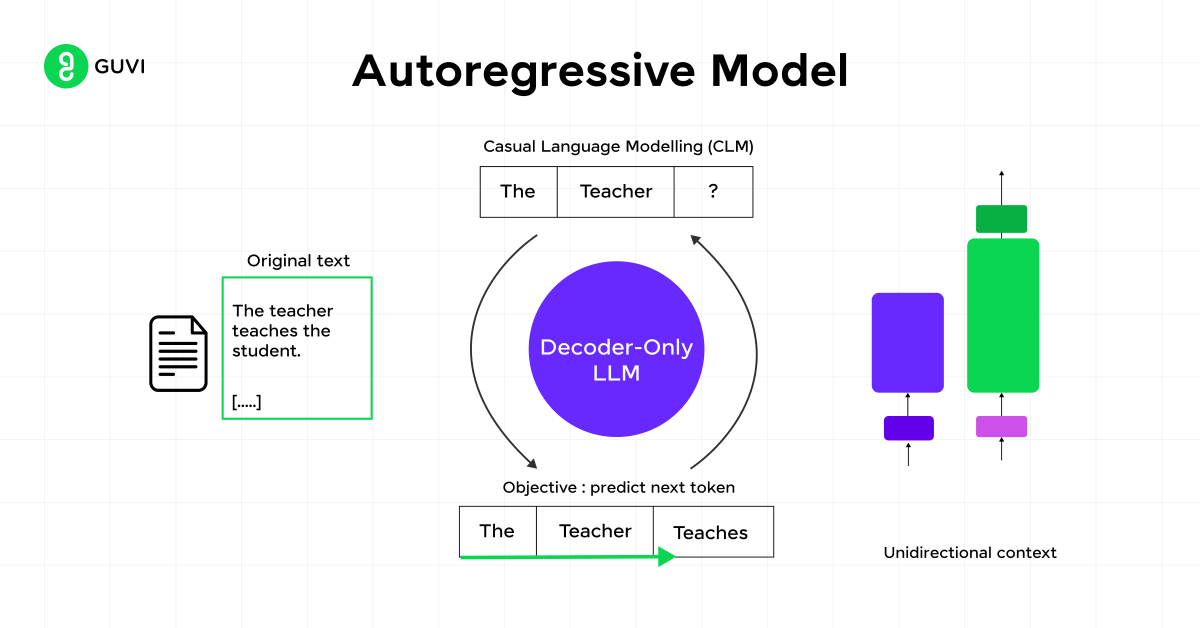
- Transformer-based Models: Popular in natural language processing, these models use attention mechanisms to effectively model relationships between different elements in a sequence.
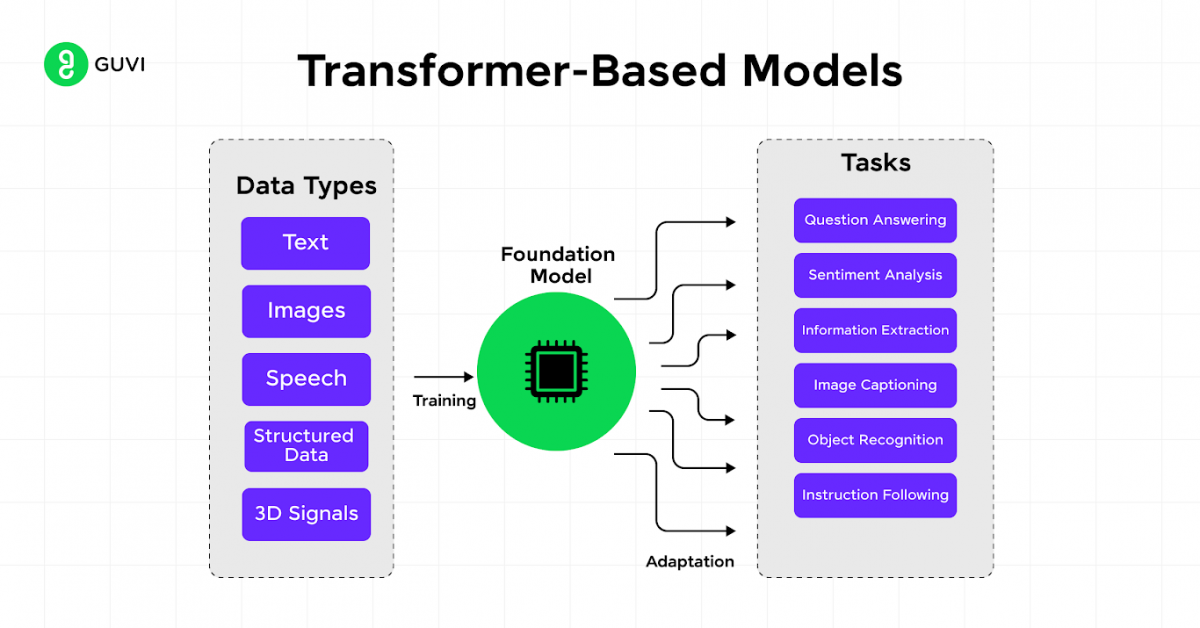
How Generative AI Works
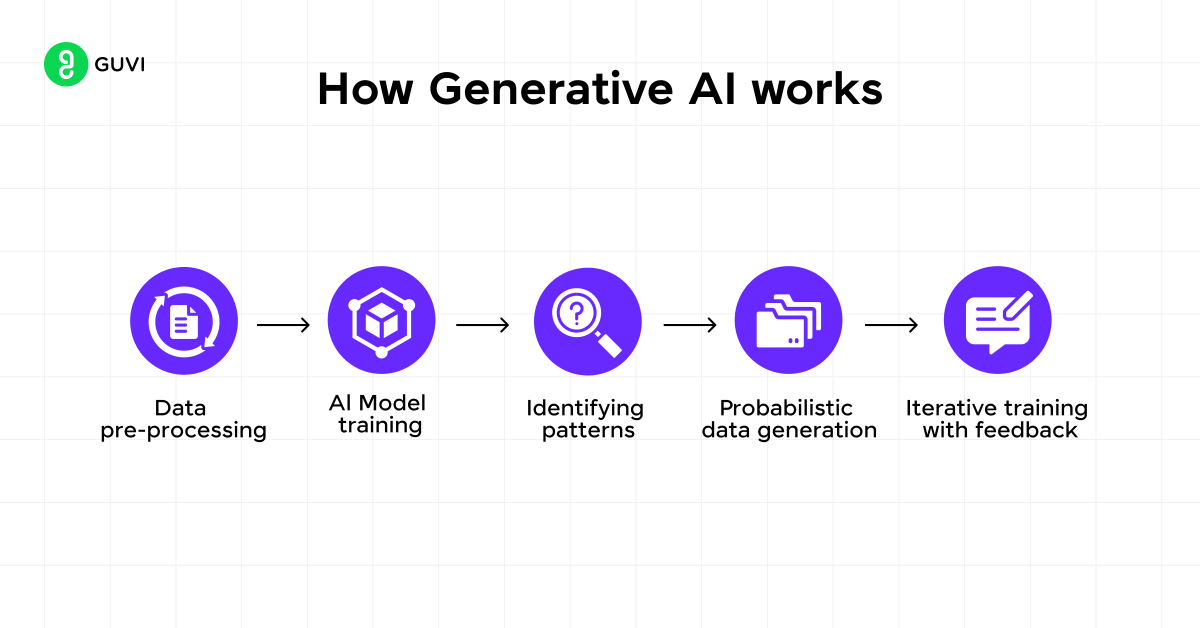
1. Data Preprocessing
Data preprocessing is the foundational step in generative AI that involves cleaning, transforming, and organizing raw data into a format suitable for training AI models. This step includes tasks such as data normalization, handling missing values, and feature extraction.
For generative AI models, especially those dealing with images, text, or audio, preprocessing ensures that the input data is consistent, reducing noise and enhancing the model’s ability to learn relevant patterns. Techniques like tokenization for text data, resizing and normalization for images, and filtering for audio are commonly employed.
2. AI Model Training
AI model training is the core phase where the generative model learns to map input data to output data by adjusting its parameters through iterative optimization. In generative models like GANs (Generative Adversarial Networks) or VAEs (Variational Autoencoders), the training involves two networks: a generator and a discriminator for GANs, or an encoder and a decoder for VAEs.
The model uses backpropagation and gradient descent to minimize the loss function, which measures the difference between the generated output and the actual data. The model continuously updates its weights to improve its accuracy in generating new, realistic data.
3. Identifying Patterns
Once trained, the AI model identifies complex patterns and structures within the data. For instance, in image generation, the model recognizes spatial hierarchies and textures, while in text generation, it captures syntactic and semantic relationships.
This pattern identification is crucial as it allows the model to understand the underlying distribution of the data, enabling it to generate outputs that are not just random but meaningful and contextually accurate. Deep neural networks, especially those with multiple layers, are adept at capturing such intricate patterns.
4. Probabilistic Data Generation
Generative AI models rely on probabilistic methods to generate new data samples. Instead of producing deterministic outputs, these models use learned probability distributions to create variations of the input data. For example, in text generation, models like GPT (Generative Pre-trained Transformer) use probability distributions over vocabulary tokens to predict the next word in a sequence.
In GANs, the generator creates data samples from a latent space (a compressed representation of the data) and tries to make them indistinguishable from real data. This probabilistic approach allows for diverse and creative outputs.
5. Iterative Training with Feedback
In iterative training, the model is continuously refined through feedback loops. For instance, in GANs, the discriminator provides feedback to the generator on how realistic its outputs are, prompting the generator to improve. This feedback-driven process is repeated over many iterations, allowing the model to enhance its performance gradually.
The iterative nature of this training ensures that the model not only learns from the initial data but also adapts and improves over time, leading to more accurate and realistic generative outputs. Additionally, techniques like reinforcement learning can be integrated to optimize the model further based on the rewards or penalties received during training.
What is a Generative AI Engineer?
A Generative AI Engineer is a specialized professional who designs, implements, and optimizes generative models. These engineers work at the intersection of machine learning, data science, and software engineering to create AI systems that can autonomously generate new content.
Generative AI Engineer Responsibilities:
- Model Development: Creating and fine-tuning generative models such as GANs, VAEs, and transformers.
- Data Management: Handling large datasets required for training generative models, including data preprocessing and augmentation.
- Model Deployment: Integrating generative AI models into production environments, ensuring scalability and efficiency.
- Optimization: Continuously improving model performance through techniques like hyperparameter tuning and model pruning.
- Collaboration: Working with data scientists, software developers, and domain experts to align AI models with business goals.
Generative AI Engineer Roles and Salaries
These generative AI jobs are also some of the highest paying in the tech industry:
1. Generative AI Engineer
They are responsible for designing, developing, and optimizing generative models such as GANs, VAEs, and transformers. They work closely with data scientists and software engineers to integrate AI models into production systems, ensuring they perform efficiently at scale.
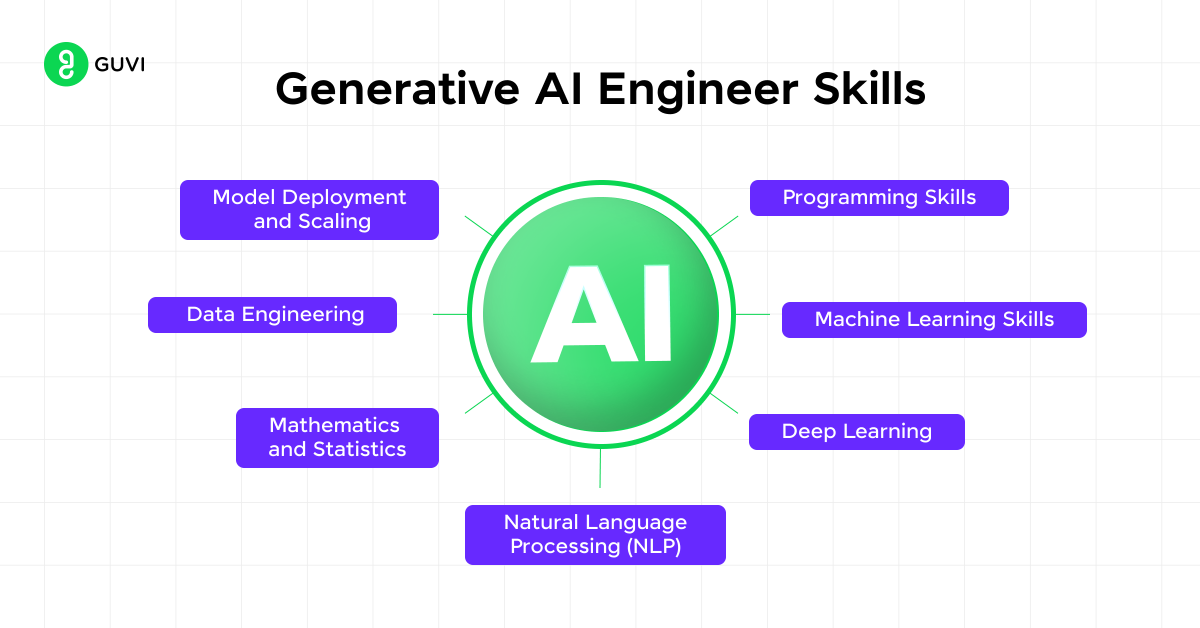
Their work often involves extensive experimentation, model tuning, and collaboration with cross-functional teams to align AI solutions with business needs.
Average Salary: ₹12-18 Lakhs/Year
Generative AI Engineer Salary based on experience:
| Experience Level | Salary Range (₹/annum) | Key Responsibilities |
| Fresher | ₹6-10 lakhs | Foundational tasks like data preprocessing, basic model training, assisting in developing generative models |
| 3 Years of Experience | ₹12-18 lakhs | Design and implementation of advanced models (GANs, VAEs), optimizing models for performance and scalability |
| 5 Years of Experience | ₹20-30 lakhs | Leading projects, mentoring juniors, working on cutting-edge R&D, driving innovations in generative AI |
| >5 Years of Experience | ₹35+ lakhs | Leadership roles, overseeing AI divisions, strategic initiatives, integrating AI into business processes |
2. AI Research Scientist
AI Research Scientists focus on the theoretical and experimental aspects of AI. They conduct cutting-edge research to develop new generative models, improve existing algorithms, and publish their findings in academic journals.
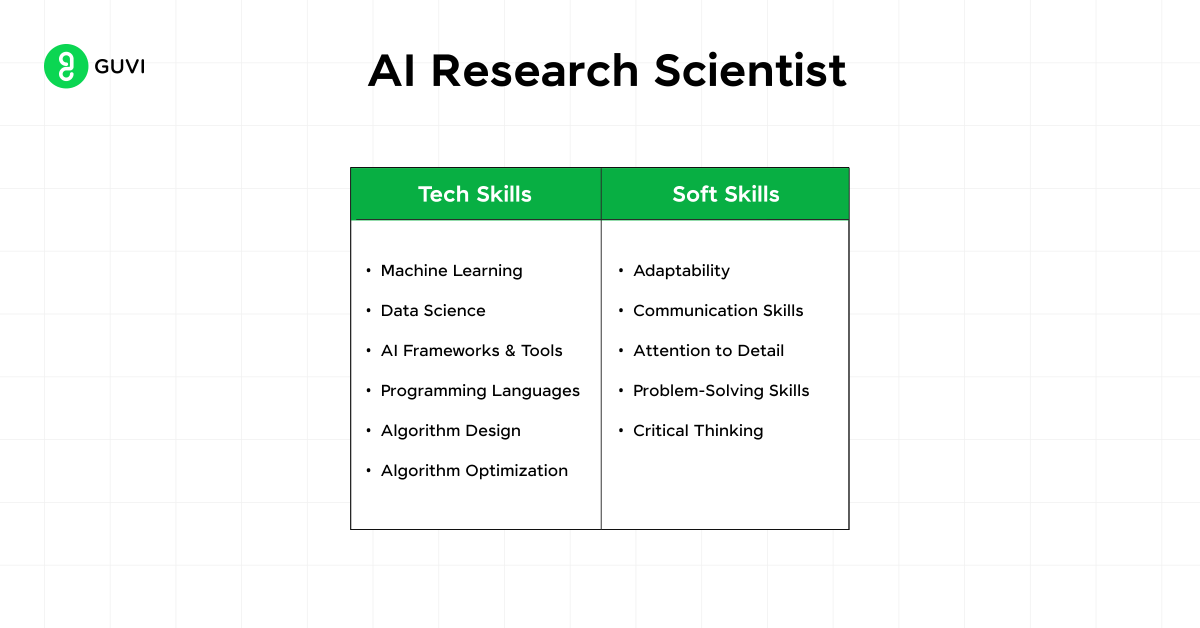
Their work is pivotal in advancing the state of AI, often leading to breakthroughs that can be applied in industry. They typically hold advanced degrees in AI or related fields and work in research labs, tech companies, or academic institutions.
Average Salary: ₹15-25 Lakhs/Year
AI Research Scientist Salary based on experience:
| Experience Level | Salary Range (₹/annum) | Key Responsibilities |
| Fresher | ₹8-12 lakhs | Contribute to academic papers, develop novel algorithms, and collaborate with engineering teams. |
| 3 Years of Experience | ₹15-22 lakhs | Lead research projects, drive innovation in generative AI, and represent organizations at conferences. |
| 5 Years of Experience | ₹25-35 lakhs | Lead large research teams, secure patents, and shape AI research direction within organizations. |
| >5 Years of Experience | ₹40+ lakhs | Lead large research teams, secure patents, shape AI research direction within organizations. |
3. AI/ML Developer
AI/ML Developers are practitioners who implement machine learning models and AI algorithms in real-world applications. Their role involves writing code, integrating AI models into applications, and ensuring these models run efficiently.
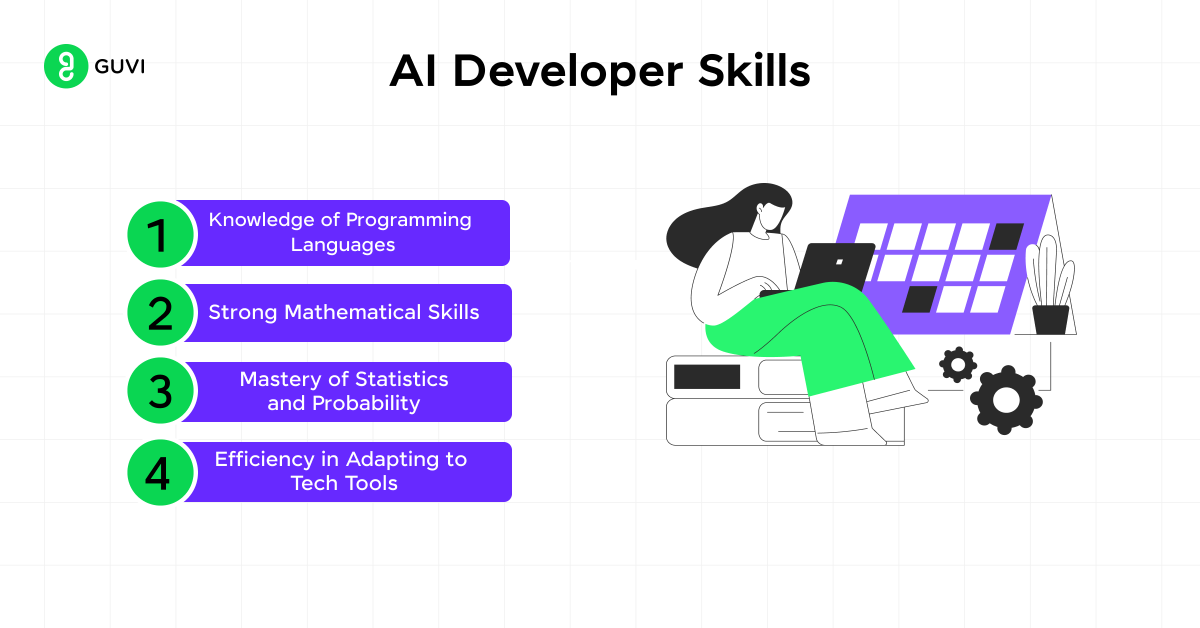
They also work on scaling AI systems, often using cloud platforms and tools like TensorFlow and PyTorch. AI/ML Developers play a crucial role in transforming AI research into practical solutions that can be deployed in various industries.
Average Salary: ₹10-20 Lakhs/Year
AI/ML Developer Salary based on experience:
| Experience Level | Salary Range (₹/annum) | Key Responsibilities |
| Fresher | ₹5-8 lakhs | Lead development teams, architect AI/ML solutions, and influence strategic technology decisions. |
| 3 Years of Experience | ₹10-15 lakhs | Design, develop, and deploy AI models; optimize models for production environments. |
| 5 Years of Experience | ₹18-25 lakhs | Handle complex projects, collaborate with data scientists, ensure seamless software integration. |
| >5 Years of Experience | ₹30+ lakhs | Handle complex projects, collaborate with data scientists, and ensure seamless software integration. |
4. Data Scientist (with AI focus)
Data Scientists with a focus on AI are specialists who analyze large datasets to extract insights and build predictive models. They often employ AI-driven approaches, including generative models, to solve complex problems.
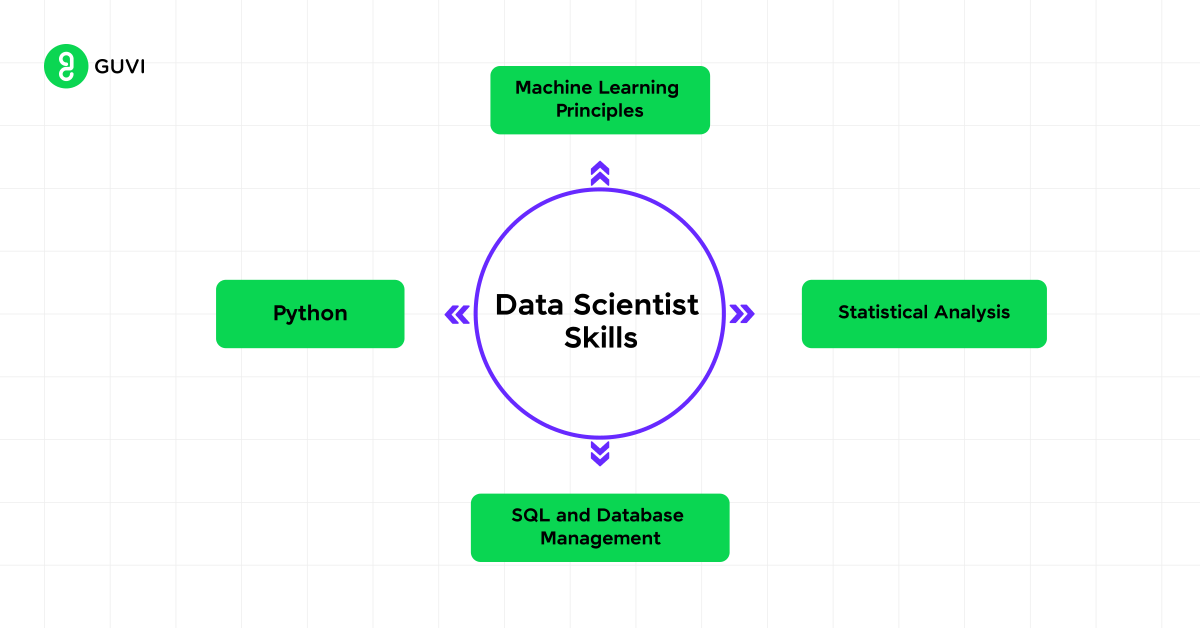
Their responsibilities include data cleaning, statistical analysis, model building, and visualization. Data Scientists collaborate with other AI professionals to implement and refine AI solutions that drive business decisions and innovation.
Average Salary: ₹8-15 Lakhs/Year
Data Scientist (with AI focus) Salary based on experience:
| Experience Level | Salary Range (₹ per annum) | Key Responsibilities |
| Fresher | ₹7-10 lakhs | Data collection, cleaning, exploratory data analysis, and building basic predictive models. |
| 3 Years of Experience | ₹12-18 lakhs | Developing and deploying machine learning models, working on AI-driven projects, specializing in areas like NLP or computer vision. |
| 5 Years of Experience | ₹20-28 lakhs | End-to-end model development, including data engineering, model training, evaluation, deployment, and collaborating on advanced AI projects. |
| >5 Years of Experience | ₹30+ lakhs | Leading data science teams, working on complex AI projects, contributing to strategic AI initiatives, including the adoption of generative models across the organization. |
Skills Required to Become a Generative AI Engineer:
To become a generative AI engineer, you need to develop a strong foundation in various technical areas. Let’s explore the key skills and knowledge required to excel in this field.
1. Programming Languages
Proficiency in programming languages is crucial for generative AI engineering.
- Python: Python is the most widely used language in AI and machine learning, thanks to its extensive libraries like TensorFlow, PyTorch, and Keras. Python is essential for implementing and experimenting with generative models.
- C++/Java: These languages are important for performance optimization and integrating AI models into production systems where speed and efficiency are critical.
- R: Useful for statistical analysis and data manipulation, especially in the initial stages of data preprocessing.
2. Understanding of Machine Learning Algorithms
- Supervised and Unsupervised Learning: Understanding the basics of these algorithms is crucial for building and refining models.
- Reinforcement Learning: Essential for certain types of generative models, especially in game theory and decision-making processes.
- Generative Models: Profound knowledge of models like GANs, VAEs, and Diffusion Models, and how they are constructed and fine-tuned.
3. Deep Learning Techniques
Deep learning plays a vital role in generative AI, enabling the creation of complex models capable of learning intricate patterns. You should have a solid understanding of neural network architectures, including:
- Convolutional Neural Networks (CNNs) for image-related tasks
- Recurrent Neural Networks (RNNs) for sequential data processing
- Long Short-Term Memory Networks (LSTMs) for handling long-term dependencies
- Transformer Networks for natural language processing tasks
4. Natural Language Processing
As a generative AI engineer, you’ll often work with text data, making Natural Language Processing (NLP) skills crucial.
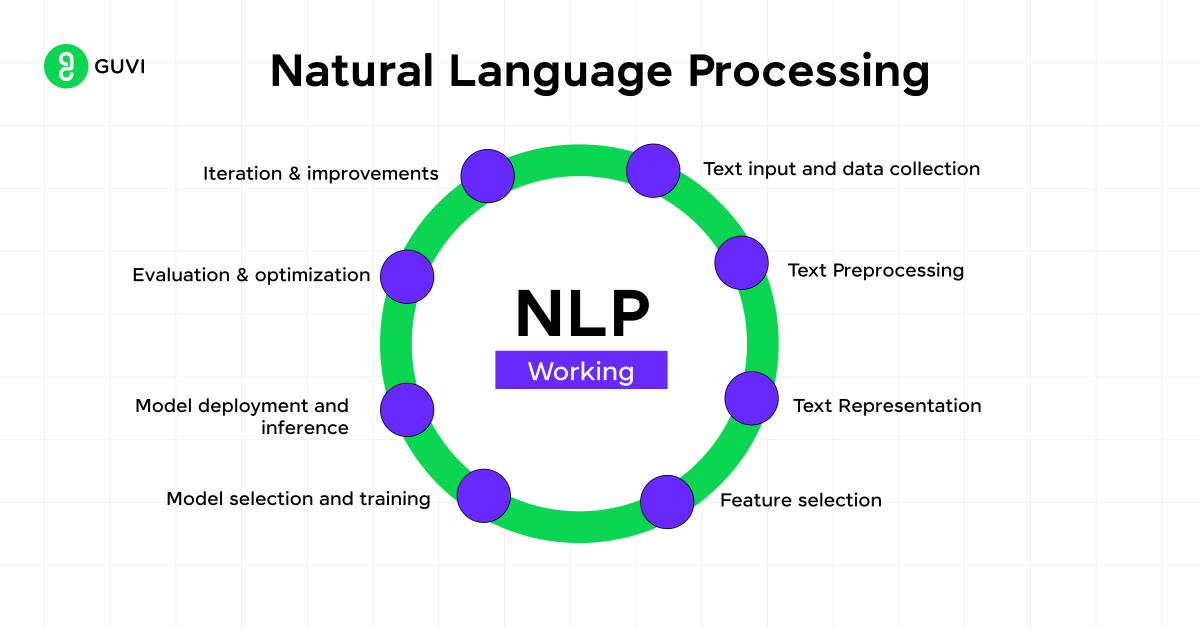
NLP enables machines to comprehend, interpret, and respond to human language. Key areas to focus on include:
- Text classification and sentiment analysis
- Named entity recognition
- Machine translation
- Text generation and summarization
5. Strong Mathematical and Statistical Skills
- Linear Algebra and Calculus: These are the backbones of machine learning algorithms. Understanding matrix operations, differentiation, and integration is essential for model development.
- Probability and Statistics: Key to understanding data distributions, which is critical when designing generative models.
- Optimization Techniques: Knowledge of gradient descent, backpropagation, and other optimization algorithms used in training AI models.
6. Experience with Data Engineering
- Data Preprocessing: Skills in cleaning, transforming, and organizing large datasets are vital since generative models often require vast amounts of data for training.
- Big Data Technologies: Familiarity with tools like Hadoop, Spark, and Apache Kafka for handling and processing big data efficiently.
7. Model Deployment and Scaling
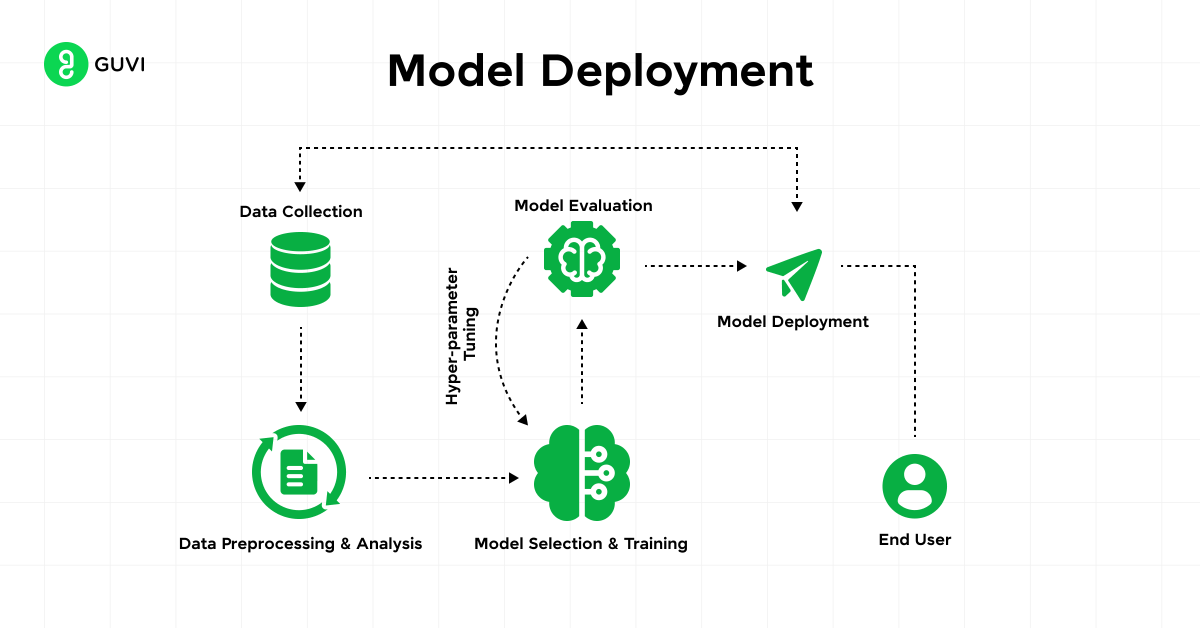
- Cloud Platforms: Experience with AWS, Google Cloud, or Azure for deploying models in a scalable and efficient manner.
- Containerization: Knowledge of Docker and Kubernetes to ensure that AI models are portable and can be easily deployed across different environments.
- APIs: Proficiency in building and consuming APIs, enabling integration of AI models into applications and systems.
By mastering these essential skills and knowledge areas, you’ll be well-equipped to tackle the challenges and opportunities in generative AI engineering.
Generative AI Engineer Education and Career Path
To become a generative AI engineer, you’ll need to follow a structured educational path and gain relevant experience. Here’s a breakdown of the key steps:
1. Formal Education
Bachelor’s Degree:
- Most Generative AI Engineers begin with a Bachelor’s degree in Computer Science, Data Science, Artificial Intelligence, Electrical Engineering, or a related field. These programs provide a strong foundation in programming, mathematics, and core AI concepts.
- Alternatively, a degree in mathematics or statistics can also be beneficial, especially for roles focused on the theoretical aspects of AI.
- The focus is on courses like Data Structures, Algorithms, Linear Algebra, Probability, and Statistics. Additionally, courses in Machine Learning, Deep Learning, and Neural Networks as we discussed in the skills section are highly recommended.
Master’s Degree (Optional but Advantageous):
- Pursuing a Master’s degree in AI, Machine Learning, or a specialized field such as Computational Neuroscience or Robotics can significantly enhance your expertise and job prospects.
- A Master’s program often offers opportunities to engage in research, where you can work on cutting-edge AI projects, contribute to academic papers, and deepen your understanding of generative models.
2. Online Courses and Certifications
To enhance your skills and credentials, consider pursuing relevant certifications:
- GUVI AI/ML Career Program: This online AI/ML course can be accessed from anywhere, making it ideal for learners with varying schedules. The course is designed and delivered by industry experts, where you gain real-world skills, build capstone projects, and get extensive placement support.
- Google AI Certification: Google offers professional certifications in Machine Learning and AI, which are well-regarded in the industry and can enhance your resume.
- IBM AI Engineering: This certification covers various aspects of AI, including generative models and their applications in the industry.
- Certified Generative AI Specialist (CGAI): This certification focuses on the practical aspects of generative AI, including the development and deployment of generative models. It’s a valuable credential for showcasing specialized skills in generative AI.
These certifications validate your knowledge and can make you more attractive to employers.
3. Career Path
a. Entry-Level Positions
- Roles: Start as a Machine Learning Engineer, Data Scientist, or AI Developer. Focus on learning the practical aspects of AI, including data preprocessing, model building, and deployment.
- Skills: During this phase, you’ll gain experience in coding, working with AI frameworks, and understanding real-world data challenges.
b. Mid-Level Positions
- Roles: Progress to roles like Generative AI Engineer, AI/ML Developer, or Senior Data Scientist, where you’ll take on more complex projects and lead AI model development.
- Skills: Expertise in deep learning, generative models, and big data technologies. Leadership and project management skills become increasingly important.
c. Senior-Level Positions
- Roles: Advance to positions like AI Research Scientist, Lead AI Engineer, or AI Architect, where you’ll be responsible for pioneering new AI technologies, managing teams, and driving AI strategy within organizations.
- Skills: At this stage, a deep understanding of AI ethics, scalability, and the business impact of AI solutions is essential.
Step-by-Step Guide to Becoming a Generative AI Engineer
I’m glad you’ve made it here, to this exclusive step-by-step guide! Follow these steps to become a generative AI engineer, we’ve already discussed everything else you might need to follow these steps and begin your journey in the prior sections:
1. Foundational Skills
- Programming: Start with Python, focusing on libraries like NumPy, Pandas, and TensorFlow. Develop strong coding skills and learn to write efficient algorithms.
- Mathematics: Build a solid foundation in linear algebra, calculus, probability, and statistics.
2. Machine Learning and Deep Learning
- Machine Learning: Learn the basics of supervised, unsupervised, and reinforcement learning. Focus on concepts like decision trees, SVMs, and clustering.
- Deep Learning: Specializes in neural networks, understanding CNNs, RNNs, and transformers.
3. Generative AI Focused Training
- GANs and VAEs: Take courses specifically on generative models. Implement projects that involve training GANs for image generation or VAEs for anomaly detection.
- Transformer Models: Study transformer-based models like GPT and BERT, focusing on their architecture and applications.
4. Practical Implementation
- Projects: Work on hands-on projects such as developing a text-based chatbot using GPT or an image generator using DALL-E.
- Competitions: Participate in AI competitions on platforms like Kaggle to apply your skills in real-world scenarios.
5. Tools and Technologies
- AI Frameworks: Master TensorFlow and PyTorch for building AI models. Explore LangChain and LlamaIndex for developing generative AI applications.
- APIs and Cloud Services: Utilize services like OpenAI API for text generation and cloud platforms like AWS for scalable deployment.
Need to do all this but still confused? Do you just want to start without the hassle of defining everything yourself, and just let studying be your whole focus?
Then, if you’d like to master Artificial Intelligence and Machine learning and bag an industry certificate to enhance your skills and resume, enroll in GUVI’s IIT-M Pravartak certified Artificial Intelligence and Machine Learning Courses!
Takeaways…
The journey to become a generative AI engineer is filled with both challenges and opportunities. By mastering essential skills in programming, machine learning, and deep learning techniques, aspiring engineers can position themselves at the forefront of this rapidly evolving field.
Building a strong portfolio through personal projects, open-source contributions, and participation in competitions like Kaggle is crucial to showcase one’s abilities and stand out in the job market.
I hope this extensive blog has been a great first guide to get you going on your journey to becoming a generative AI engineer! Do let us know about your experiences through the comments section below.
FAQs
The average salary of a Generative AI engineer in India ranges from ₹12 to ₹30 lakhs per annum, depending on experience and skills.
Generative AI engineering involves developing AI models that can create new content, such as text, images, and code, by learning patterns from existing data.
To become a generative AI engineer, you’ll need to:
1. Gain a strong foundation in computer science, mathematics, machine learning,
2. and expertise in deep learning frameworks like TensorFlow or PyTorch,
3. Work on projects involving generative models such as GANs, VAEs, or transformers,
4. Advanced education like a master’s or Ph.D. in AI is often beneficial.
Python is the most commonly used programming language in Generative AI due to its rich ecosystem of AI libraries like TensorFlow, PyTorch, and Keras.
Yes, several platforms offer certifications in Generative AI such as GUVI offers a Generative AI course that provides practical skills in AI-driven content creation and model development, making it a valuable certification for aspiring professionals.



















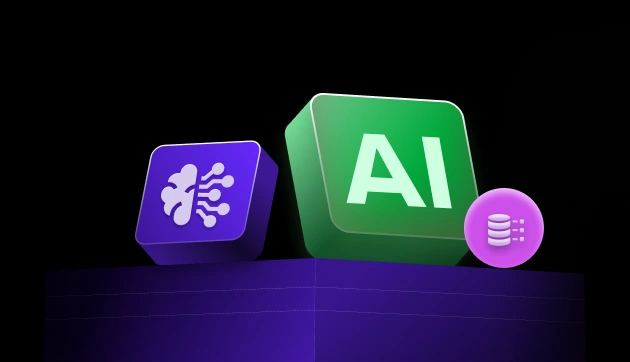

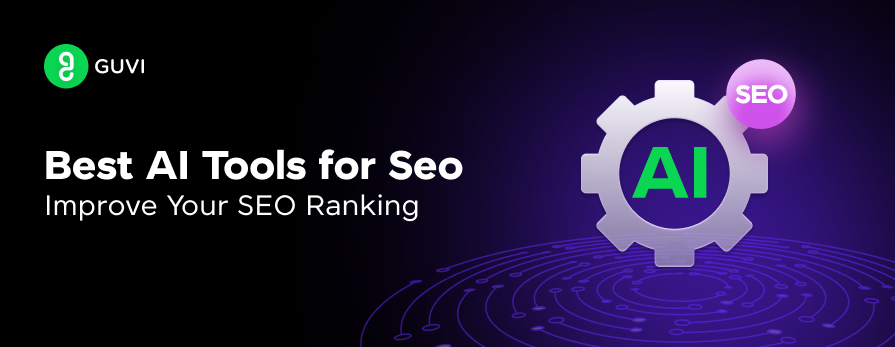
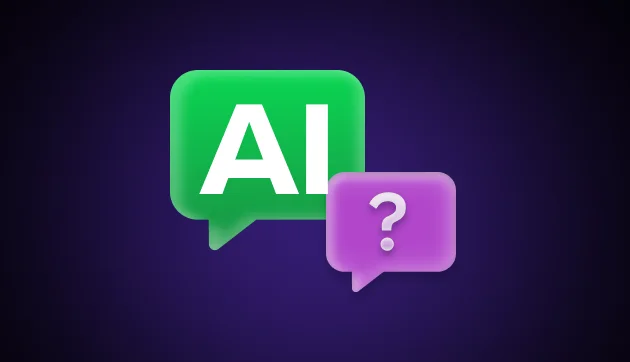


Did you enjoy this article?